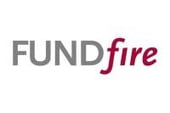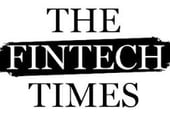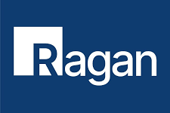Media Clips
Eric Hazard’s expertise in financial communications consistently places him at the forefront of industry conversations. Whether analyzing the strategic PR moves of global giants like BlackRock or dissecting the nuances of fintech innovation, Eric provides bold insights that resonate with leaders, investors, and everyday consumers alike.
Quoted in leading outlets such as Bloomberg, Fundfire, and PR Week, Eric brings clarity to complex financial concepts, offering actionable advice on crisis management, strategic messaging, and the evolving role of technology in finance. His sharp perspective has made him a trusted voice on topics ranging from social media's impact on financial literacy to the vital role of UX in modern banking.
As both the CEO of Vested Ventures and a managing director at Vested, Eric’s commentary reflects a deep understanding of financial markets and a commitment to fostering transparency and trust. His work with media and at high-profile events showcases a pragmatic yet forward-thinking approach, helping financial organizations navigate challenges and seize opportunities in an ever-changing landscape.
"They got out ahead of it. They acknowledged it in a very open and transparent manner. They told you exactly what the issue was. And they took immediate corrective steps," said Eric Hazard, a managing director at communications consultancy Vested.
Going forward, BlackRock will need to continue to monitor the news cycle and prepare for possible scenarios, said Hazard.


Eric Hazard, CEO of financial communications agency Vested Ventures, stresses the importance of evaluating a TikTok commentator’s financial experience and how easy it is to find. He also highlights the importance of content creators providing disclaimers when discussing investments. A lack of transparency from creators should alert investors to potential scams.
“A credible FinTok influencer should base their advice on sound investment principles and data-driven insights rather than speculative or high-risk strategies,” Hazard told InvestorPlace. “They should encourage practices like diversification, long-term investing, and thorough research, which are hallmarks of prudent financial management.”


Commenting on what young people are looking for, Eric Hazard, CEO of VestedVentures, the fintech startup investors, said: “There are three main areas of focus for fintechs to build comfort with consumers in switching banks: a smooth user experience, personalisation, and security.
“User experience is important to ensure banking platforms are intuitive, secure, and operational across all age groups. Different age groups will look for different things from a bank. For older generations, this might mean incorporating more educational resources and customer support to assist with the digital transition. For younger users, a seamless, fast, and mobile-first approach is crucial.
“Which leads to the importance of personalisation. By leveraging data analytics, fintechs can offer customised financial advice, product recommendations, and support, making users feel valued and understood, irrespective of their age.
“Another key consideration is security. Consumers must be assured their sensitive financial data and information will be handled securely by a new institution. Fintechs should invest heavily in advanced encryption and authentication methods to protect user data. Clear communication around these security measures helps in building trust across all age groups.”


According to Eric Hazard, managing director at Vested, the best pieces of content emerge from conversations within the communications team, driven by a keen sense of what’s important to the members of your organization.
“Make sure you’re aware of what your internal communications objectives are,” Hazard said.
Because comms teams need to determine what content will provide maximum value to the people that the messaging is going out to, internal editorial calendars are a great way to reinforce external messaging and align it with all communications functions of the organization.
Hazard provided a hypothetical scenario: Suppose your organization is being recognized as a great place to work. How do you turn an external-facing award into internal news? There’s a multi-step thought process that goes into it, and an editorial calendar can help.
“Think about the channels that you’re going out to: Does it go out to Linkedin? How about the intranet? The important thing is that the employees see these messages frequently, as they can help build culture,” he said.

